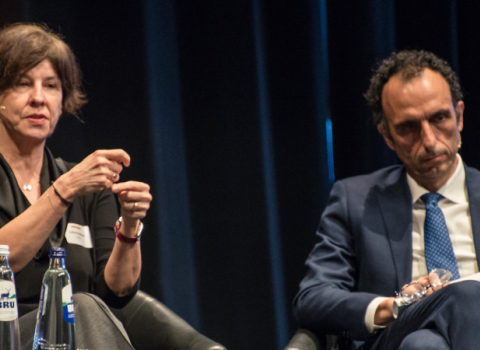The European Parliament has voted to withhold approval of the 2014 accounts of the multibillion-dollar ITER fusion project currently under construction in Southern France, saying the budgetary and financial management lacks coherence and was often incomplete, and criticising the ITER management Council for its failure to publish a new action plan.
The project is facing growing project costs and delays and instead of the customary signoff, MEPs are demanding improvements in ITER’s financial management procedures. The project will now be given five months to demonstrate it has improved its processes.
The MEPs are at odds with the European Court of Auditors (ECA), according to Commission energy spokeswoman Anna-Kaisa Itkonen, who said the vote is despite a positive statement from the ECA giving assurance on the “reliability of the 2014 accounts” and the “legality and regularity of the underlying transactions”.
In addition, Itkonen noted several measures were taken last year to put things back on track and ensure things run to time, there is stringent control of cost and budget evolution, and procurement procedures and practices are revised.
Itkonen gave an undertaking that the Commission will also ensure that once a revised and realistic schedule is adopted by the project, it is presented to the European Parliament, together with corresponding actions needed for its proper implementation.
This is the latest wrap on the knuckles for ITER. The latest estimates from the project, which aims to prove the technical feasibility of nuclear fusion as a source of energy, say it will at least six years behind the official schedule.ITER is expected to receive €2.7 billion from the EU’s Horizon 2020 research programme. There was no answer to a request for comment from the project’s management.
Romanian MEP Marian-Jean Marinescu, who sits on the budget committee and was one of those to take ITER’s accounting to task, told Science|Business he remains confident in the project. “I hope that the new programme will be approved by the ITER Council in June,” he said.
Other science projects questioned
MEPs also withheld approval from two EU-backed public-private partnerships, ARTEMIS and ENIAC, with project managers being told to retrieve additional documents and information from national audit bodies.
ARTEMIS and ENIAC merged in 2014 to form Electronic Components and Systems for European Leadership, or ECSEL, specialising in nanoelectronics and embedded computing. The head of ECSEL Bert De Colvenaer, (who until January ran the EU-backed Fuel Cell and Hydrogen Joint Undertaking), said accounting discrepancies had occurred in only 0.29 per cent of transactions, which he claimed is very low compared with other research programmes.





 A unique international forum for public research organisations and companies to connect their external engagement with strategic interests around their R&D system.
A unique international forum for public research organisations and companies to connect their external engagement with strategic interests around their R&D system.